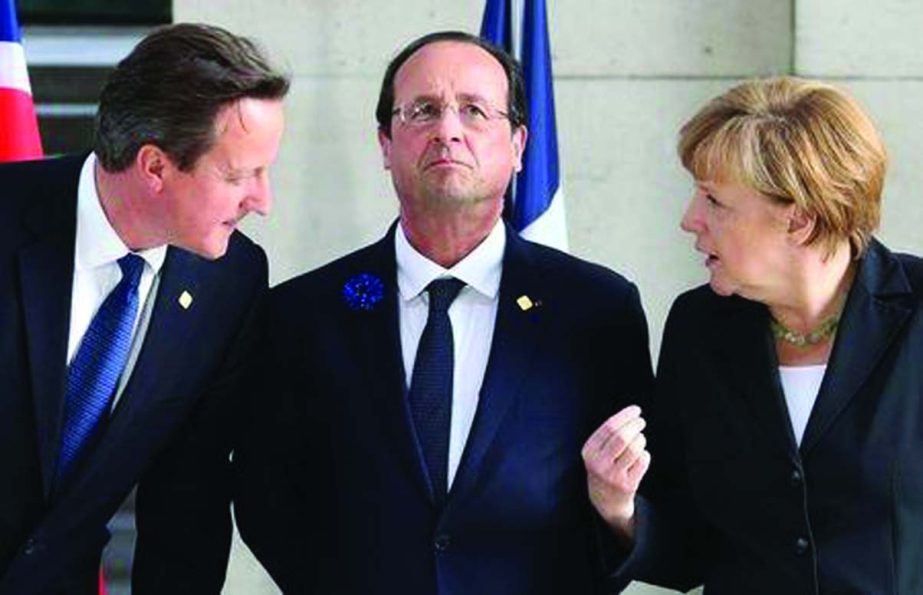
Reuters, Paris :
In less than three weeks, Britain’s David Cameron and France’s Francois Hollande have set out starkly contrasting approaches to immigration, while Angela Merkel has warned fellow Germans against manipulation by far-right xenophobes.
The divergent stances of the three heavyweight leaders show how hard it will be to agree on any reform of European Union policy on migrants, which Cameron has set as a goal before a promised 2017 referendum on Britain’s membership of the bloc.
Each is responding to growing anti-immigrant, anti-EU populist movements that threaten the long dominance by mainstream parties of the center-left and center-right.
It remains to be seen which, if either, approach will prove effective in countering the far right and meeting Europe’s demographic and social challenges.
Cameron has chosen to dramatize the immigration issue and make it a test for Britain’s EU membership in an attempt to undercut rising support for the UK Independence Party before a general election next May.
He is demanding that the EU change its founding treaty, which enshrines the principle of free movement of people as well as goods and capital, to make it easier to crack down on unemployed migrants and alleged welfare abuses.
Studies show immigrants from other EU states are big net contributors to the welfare system and make fewer claims than British citizens, but Cameron wants to ban them from receiving benefits for the first four years worked in the country.
In less than three weeks, Britain’s David Cameron and France’s Francois Hollande have set out starkly contrasting approaches to immigration, while Angela Merkel has warned fellow Germans against manipulation by far-right xenophobes.
The divergent stances of the three heavyweight leaders show how hard it will be to agree on any reform of European Union policy on migrants, which Cameron has set as a goal before a promised 2017 referendum on Britain’s membership of the bloc.
Each is responding to growing anti-immigrant, anti-EU populist movements that threaten the long dominance by mainstream parties of the center-left and center-right.
It remains to be seen which, if either, approach will prove effective in countering the far right and meeting Europe’s demographic and social challenges.
Cameron has chosen to dramatize the immigration issue and make it a test for Britain’s EU membership in an attempt to undercut rising support for the UK Independence Party before a general election next May.
He is demanding that the EU change its founding treaty, which enshrines the principle of free movement of people as well as goods and capital, to make it easier to crack down on unemployed migrants and alleged welfare abuses.
Studies show immigrants from other EU states are big net contributors to the welfare system and make fewer claims than British citizens, but Cameron wants to ban them from receiving benefits for the first four years worked in the country.

